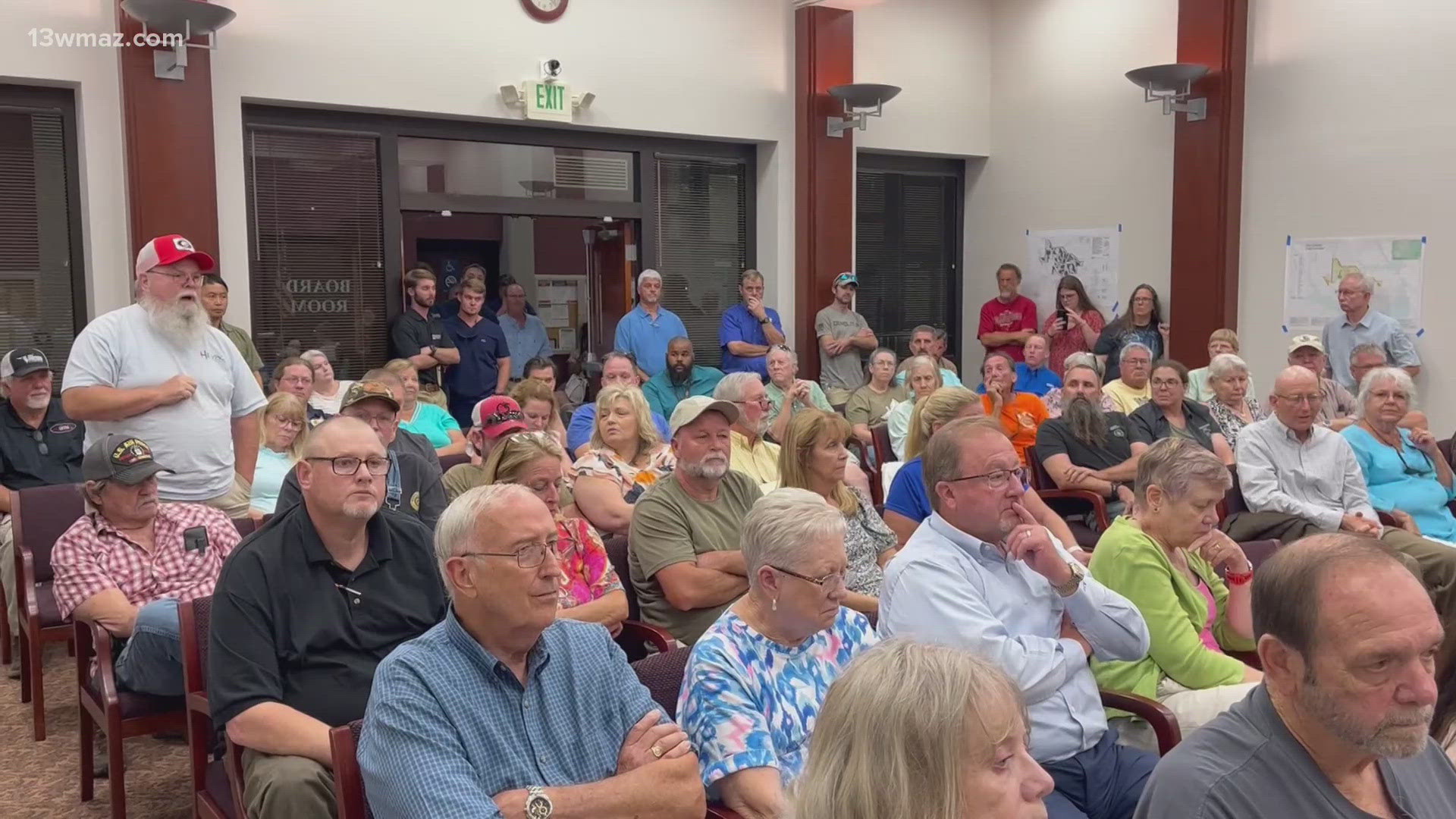HOUSTON COUNTY, Ga. — Many people in Houston County are walking away with some relief Monday night, after the county Zoning and Appeals Board decided not to recommend a 4,700 acre solar farm project.
Of the many community speakers that were against, only one person spoke up in support of the development.
For two hours, citizens questioned the Nashville-based company Silicon Ranch.
"It is not good for Houston county," Ray Jones said. "It is not good for the wildlife of Houston County."
People asked many questions about the company's reason for building another solar farm in the county. Silicon Ranch currently has a solar farm and lambing barn in Elko.
Connor Echols, a project development manager with Silicon Ranch says they want to build one off of Highway 247, because the location has a large transmission line they can use for their solar farm.
"We believe this is a good site, we believe this is good for the county," Echols said.
The company also tried to shut down concerns about stormwater issues, potential for wildfires, and added heat this solar farm could bring.
Many people also had concerns about how it would impact their property values.
"It is ludicrous, ludicrous to think that this solar farm won't decrease the value of your property. If you live anywhere in this center, nobody, nobody wants to live next to a solar farm," Ed Varner said.
However, the company disagreed.
"There's been a lot of studies that show property values can go up when solar panels are around," they said.
Echols said that while they will purchase 4,700 acres, only half of it will be filled with panels. 2,500 acres will be unfenced and undeveloped, and wildlife can still roam through those areas.
At this time the company hasn't decided if they would use sheep to help with maintenance on the ground. They also admitted they had not studied wildlife impact yet. However, they said they are talking with the Department of Natural Resources about way to support the black bears on Oaky Woods.
The impact on black bears was a major concern for visitors. A student from the University of Georgia, even came to give a presentation on the black bear population in that area. They discourage the project, because of current studies they are running.
At the end of the night, the crowd nor Board members were sold on a decision. Board members decided to give the project an unfavorable recommendation.
Members John Trussell and Lisa Bowen sat out from the vote.
Now, county commissioners will make a final decision on the project. Despite the board's decision, commissioners do not have to vote against it.
That meeting will be on Tuesday, Sept. 3rd at the County Courthouse in Perry at 9:00 a.m.
The Silicon Ranch Director of Corporate Communications Rob Hamilton sent this statement following Monday night's decision:
"As we do with every project we develop, Silicon Ranch designed Robins Solar to comply with the county ordinance and the regulations of all local, state, and federal agencies, and therefore we are disappointed not to have received a favorable recommendation from the Houston County BZA.
Nonetheless, we thank the Houston County BZA for giving us the opportunity to present our plans for the project and to demonstrate how carefully we have considered every aspect of our plans for the site. We look forward to continuing our open, transparent dialogue with public officials and our neighbors in this community during the next steps in this process.
If Robins Solar is ultimately welcomed into Houston County, the project represents a capital investment of at least $280 million in the local community and will generate tens of millions of dollars in new tax revenues in the years to come to support local infrastructure and schools, among other community-identified priorities. Moreover, Silicon Ranch is actively engaged in discussions with multiple parties, including government agencies, higher educational institutions, and nonprofit organizations, for potential partnerships and research opportunities related to ongoing activities and conservation efforts on the site. Our plan for the site preserves more than 700 acres of wetlands and leaves more than 2,500 acres unfenced and undeveloped, and we look forward to working collaboratively with these groups to optimize the benefits that responsible development and thoughtful land stewardship can yield."

